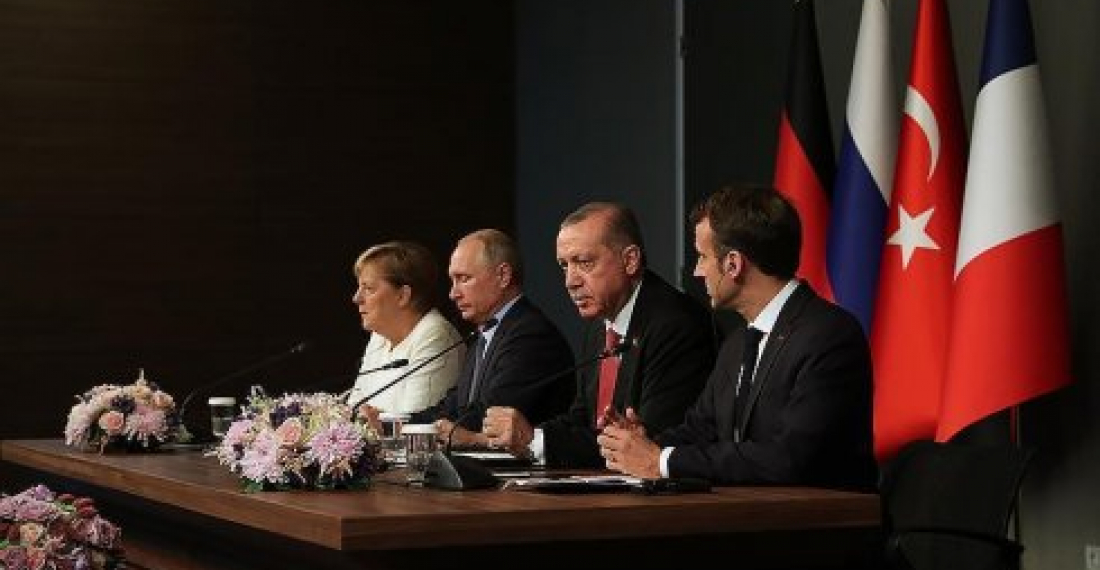Updated
Leaders of Turkey, Russia, Germany, and France on Saturday expressed their determination to end the bloodshed in war-torn Syria as quickly as possible.
Following a summit in Istanbul Turkish President Recep Tayyip Erdogan along with Russian President Vladimir Putin, German Chancellor Angela Merkel and French President Emmanuel Macron held a joint news conference calling on the international community to work hand in hand for a sustainable solution in Syria.
"We have discussed a political solution in line with Syrian people's legitimate demands which moves to reach stability in the country," Erdogan told reporters.
"Our aim is to reach a complete cease-fire to halt the bloodshed," he said, adding that the four nations agreed to increase cooperation among themselves and at the international level on the issue.
The leaders also called for the completion of the constitution committee's process for establishing a Syrian constitution by the end of this year that would pave the way for an inclusive and fair election in the country which has been at the brunt of a devastating civil war since 2011.
-----
Turkish president Recep Tayyip Erdogan will host the French, German and Russian leaders in Istanbul Saturday (27 October) for a meeting that will focus on Syria, but is likely to touch also on other international issues. The leaders will gather in this format for the first time.
The Kremlin press service said earlier that the summit's agenda will also include "several other pressing international issues," but did not clarify what other topics might be covered. The leaders are also expected to hold a series of bilateral talks in addition to the quadrilateral summit.
Writing ahead of the summit on Hurriyet Daily news, prominent Turkish columnist Serkan Demirtas says, "Diplomatic sources are not very optimistic that the summit could produce a concrete road map or a series of new ideas to the problem. However, they believe it's good that countries with differing positions on the problem can come together and perhaps work to narrow their differences for the sake of a chance for peace in Syria".
source: commonspace.eu with agencies






